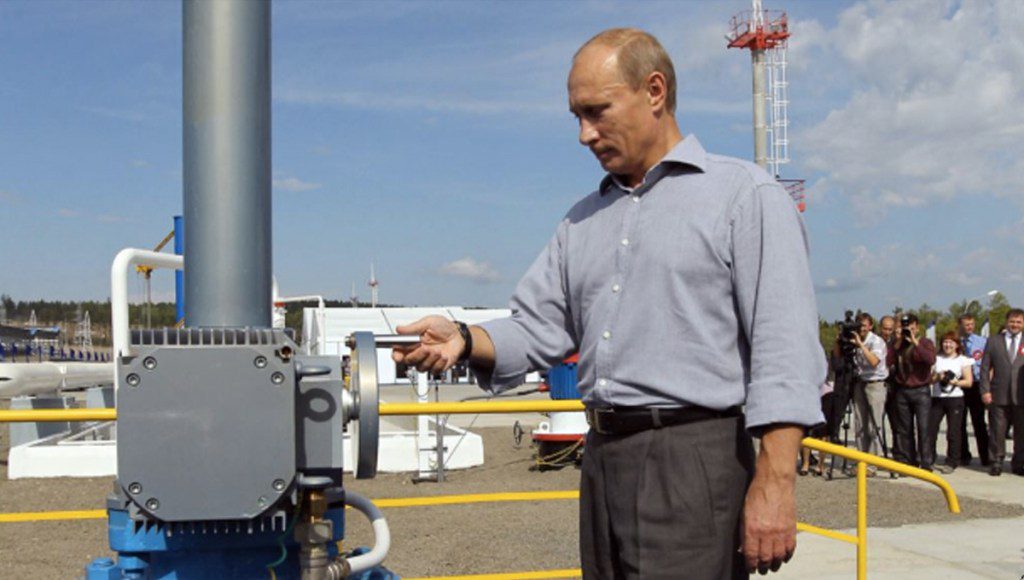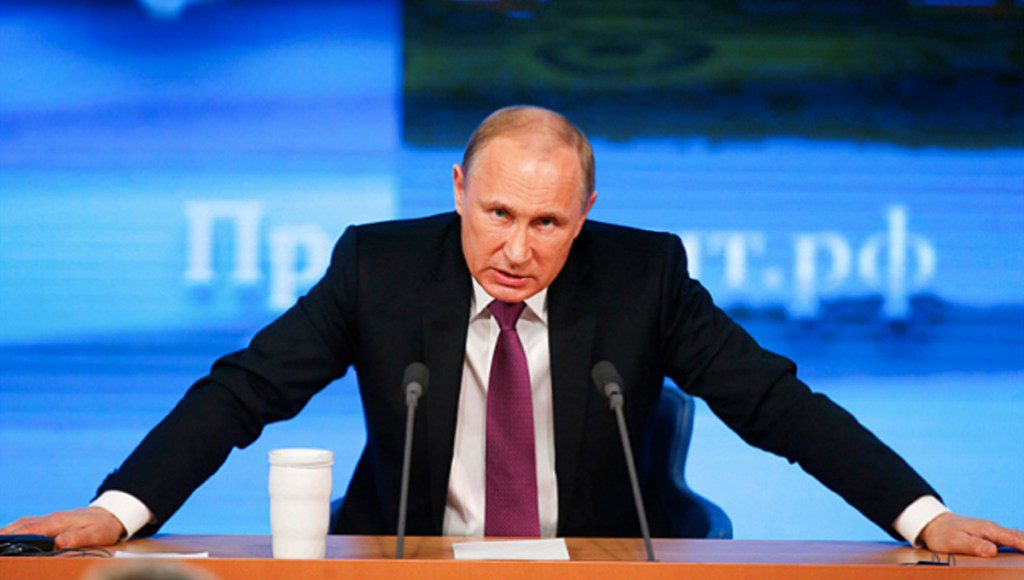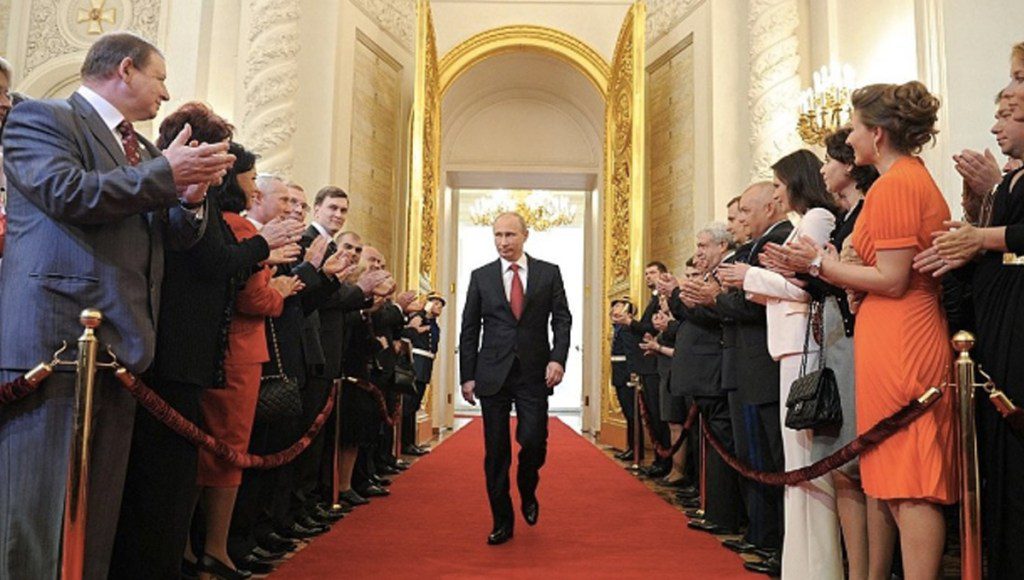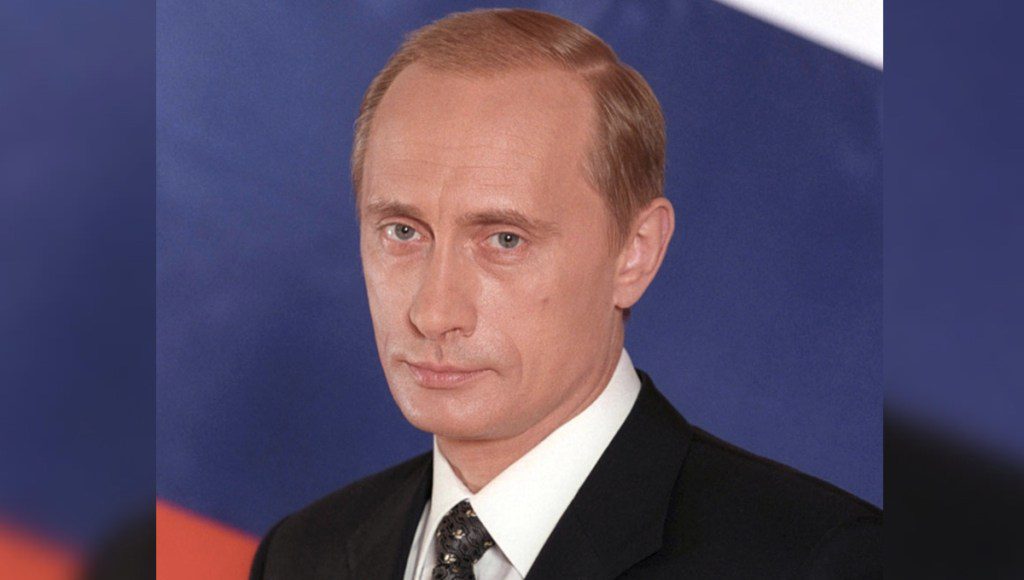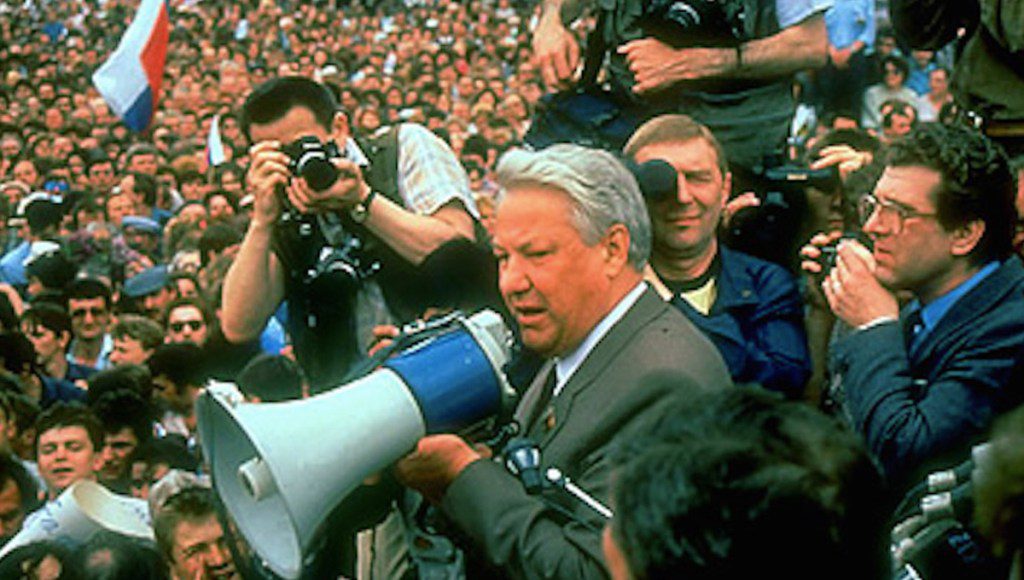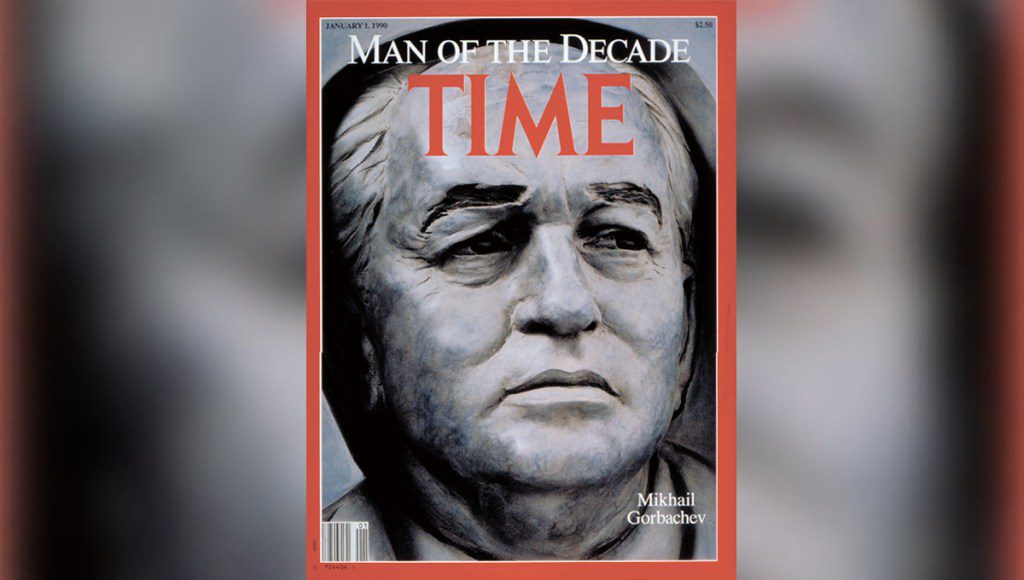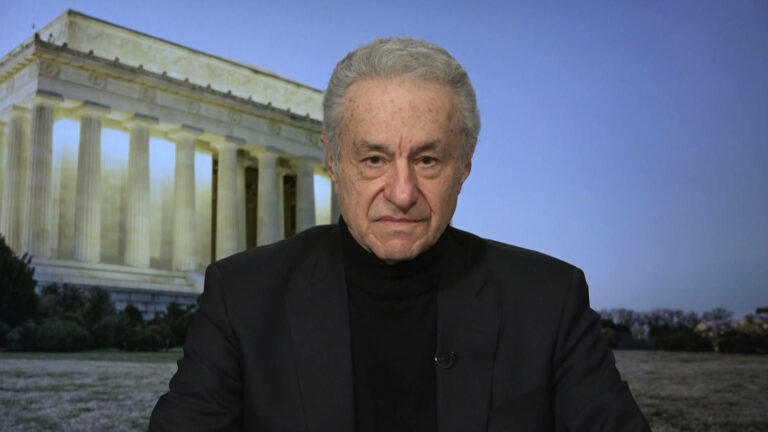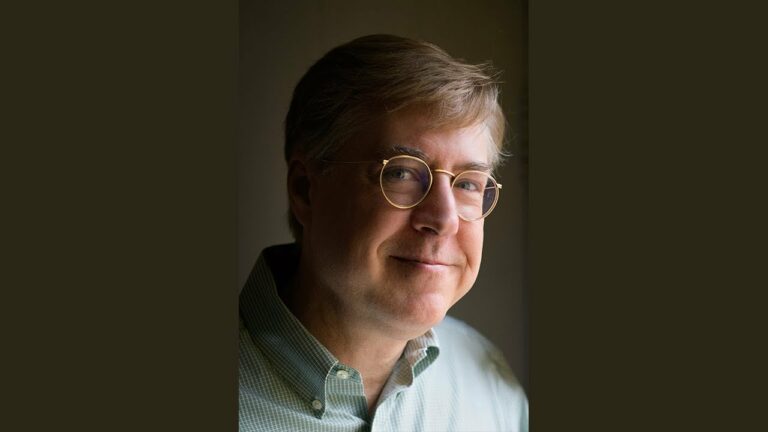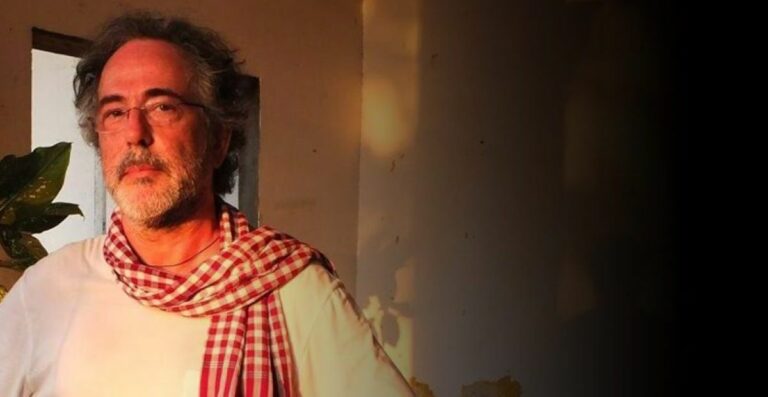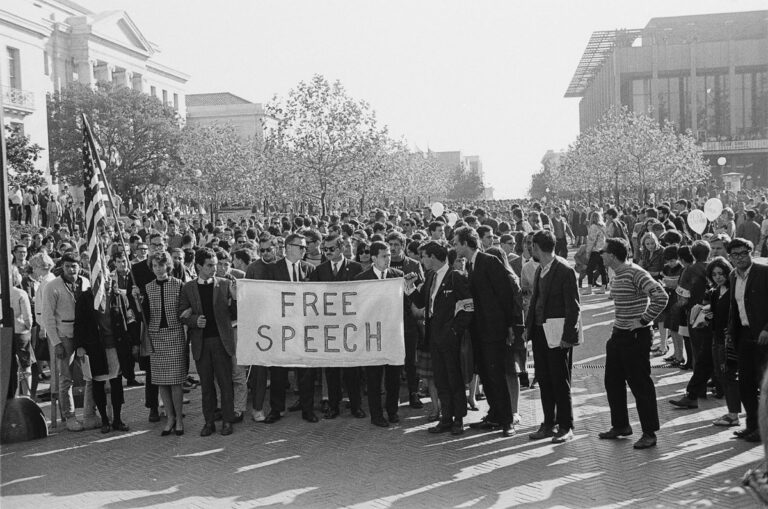Podcast: Play in new window | Download | Embed
Subscribe Apple Podcasts | Spotify | Android | iHeartRadio | Blubrry | Email | TuneIn | Deezer | RSS
Prof. Aleksandr Buzgalin joins Paul Jay on Reality Asserts Itself; born two years after the death of Stalin, he talks about growing up in the Soviet Union.
This is an episode of Reality Asserts Itself, produced July 11, 2018.
STORY TRANSCRIPT
PAUL JAY: Welcome to The Real News Network and welcome to Reality Asserts Itself. I’m Paul Jay. I’m in New York. My guest, who just flew in recently from Moscow, was born just one year after the death of Stalin, and he grew up in Moscow.
Alexander Buzgalin is a professor of political economy and the director of the Center for Modern Marxist Studies at Moscow State University. He’s also editor of the Independent Democratic left magazine, Alternatives, a coordinator of the Russian Socialist movement, Alternatives, and author of more than twenty books and hundreds of articles translated into English, German and many other languages. So, thanks for joining us.
ALEXANDER BUZGALIN: Thank you. I’m really very glad to have this chance.
PAUL JAY: So, growing up at home, at a time just after the death of Stalin- and we’ve all seen, the West’s seen pictures and video or film- it would have been of the funeral after Stalin, and the hundreds and hundreds of thousands of people in the streets mourning his death. We know about the cult of personality and the importance that Stalin’s figure played in Soviet life. What’s it like growing up, as a child, in that kind of atmosphere?
ALEXANDER BUZGALIN: Well, first of all, I was a child when Stalin was dead. And my life, my life in school, my life just after school, was interconnected in an atmosphere of Spring, of the beginning of Spring, so called Oттепель (Ottepel). You know, sometimes in the Winter when wind from the South is coming, instead of snow you have a little bit of warm weather. So, it was that situation in late 1950s, early 1960s when I was, more or less, ready for understanding of the reality. Because in the 50s, I was nobody. What is important: my father was an engineer, but a military engineer, and my mother was working with him. And it was creation of a system of strategic nuclear rockets. From one point of view, this is dangerous, the most dangerous weapons which can exist in the world. From another point of view, now there is opinions that without this system of rockets, it could be a real third world war with terrible destruction of everything, at least in the mentality of all my elder friends and my parents.
PAUL JAY: Meaning without the nuclear mutually assured destruction, there might have been conventional warfare.
ALEXANDER BUZGALIN: Yeah, you’re absolutely right. And they were working very hard and money was not motivation for them. They were trying to prevent World War III, and it was the main motivation for hundreds of people. And conditions for work were absolutely terrible. And I was living not in Moscow, I was living in small villages not far from the place, a forest, where this construction was under the earth. I don’t know how to say it in English. The atmosphere was very interesting- atmosphere of friendship, not simple, but comrade relations, officers, engineers. But we had debates about new novels in Journal of Foreign Literature. We had debates about new jazz music. I grew up on great American jazz, it was not really forbidden. In the same time, it was big debates about politics. And when Khrushchev gave information about victims of Stalin’s terror, it was big debates. An interesting time, provocative time, romantic time, if you want.
PAUL JAY: You and I are about the same age. And when I was a teenager, I grew up under the same kind of idea, that nuclear war was possible, the Cuban Missile Crisis. The fear, the atmosphere that nuclear war might be eminent must be even stronger in a country that just lost thirty million people not that long before, in World War II.
ALEXANDER BUZGALIN: Really, it was not fear. It was a feeling that we can prevent this, but we must work hard in order to prevent this. Fear, when you don’t have forces, when you don’t have opportunities to do something, you are just victim, and victim is waiting. Will you be punished? Will you be killed or not? We had another atmosphere. We are creators of our future. And we can and must work hard in order to create a future which we like. And it was very rapid changes. A few years before, a terrible war finished.
One half of the European territory was completely destroyed, completely, nothing, after it finished. After twenty years, first man in space, fantastic results in science, very big and rapid growth in education. And at the same time, difficult life. It was shortage of normal food, good food. It was problem to buy ice cream, in the village it was impossible. I had ice cream maybe two times in a year, as a- I don’t know, gift for the celebration of one or another holiday. So, it was not so important for us, this atmosphere of good things. And the situation was also very contradictory. We had a nation of bureaucracy. And I felt this because my parents were under the supervision of stupid generals sometimes, and all this was discussed.
PAUL JAY: And if they’re involved in the preparations of the nuclear arsenal, they must have been particularly under observation.
ALEXANDER BUZGALIN: Yes, of course, but then we went back to Moscow because my father had big problems with health. It was terrible work, really. And when I was fourteen years old, even a little earlier, we went back to Moscow and I was very lucky. We had a very good pioneer organization in our school in Moscow. It was ordinary school, not in the center of Moscow, but with a lot of social activity. We had self- management in the school, by the way. School boys and school girls had the right to decide or question the everyday life of the school. To clean everything, it was our obligation. To make repairs, it was our obligation. To discuss what to do in free time, how to do, and so on. It was interesting common work. We had a big activity to put together all our stuff which is not very necessary- bicycles, toys- for Vietnamese kids, to make some jobs to help take money to send something which we can buy. But at the same time, we had a lot of conflicts with officials, with bureaucrats, who were mainly creating obstacles for our self-organization. So, from the very beginning, I was in this contradiction; social activity from below, and bureaucratic oppression.
PAUL JAY: Were your parents in the Communist Party, and what were the kind of values, politics of your house, your home, growing up?
ALEXANDER BUZGALIN: My mother not a member of the Communist Party. My father was a member of the Communist Party, but he became a member of the party when he received top status in Moscow at the end of his working career, only. So, it was not obligationary. Atmosphere was- I cannot say dissident, but critical, about the situation in the Soviet Union. And it was very honest debates, what was going on, is understanding of contradictions with problems. I must stress a very important point. We had- not only my family- big interest towards classic literature, classic music, classic culture, I can say, and romantic culture. It was normal to read poems, to dream. Science fiction, but not American-style or modern Russian-style science fiction, it was attempts to create an image of the future communist world. And it was beautiful, and we still have very beautiful novels about this future communist world, the contradictions of this world, problems of this world. And this romantic atmosphere was very important for us. It was commonplace, everybody was absolutely sure that the beginning of the twenty-first century will be a victory of socialism in main part of the world, it will be a lot of scientific decisions.
So, robots everywhere in the beginning of the twenty-first century, of course. Hand labor in the twenty-first century? Impossible! Waitress? Impossible! Worker who is doing something in the factory instead of machines? Impossible! Automatic cars without drivers? Of course! Airplanes which will cross the planet for thirty minutes? Of course! It is absolutely evident. So, we showed that the progress is going on, and the future is very interesting, beautiful, but if you want to have this future, you must work hard. And we had even such expression. Romantic dreams? Yes, of course. But what does it mean, romantic dreams? To work twelve hours a day on the basis to do this. It was one half of the life. It was another half of the life, where people were looking for American-style jeans, Wrangler or Levi-Strauss label. It was a problem to buy good-quality sausages, especially if you are not in Moscow. It was money fetishes, yes, for a big part of the population. We had hooligans, we had battles in the streets, pioneer group against hooligans. Yes, it was also part of our life. So, I don’t want to create an ideal model. I want to stress that for a minority, but a very important minority, of Soviet society, this romantic communist- style of dreams, of self-organization, was essential.
PAUL JAY: But, at least the perception from outside is that the Soviet state had become a kind of police state, that the ability to talk openly was very restricted. There were elections, but they were controlled by the communist party. If all that’s true, then there’s quite a difference between the reality of life, the official narrative, and you grow up in that contradiction.
ALEXANDER BUZGALIN: Yeah, it’s absolutely true. And really, I felt this contradiction, but not when I was a schoolboy, when I became a student of Moscow State University, one of another, again, paradoxes. In the Moscow State University Economic Department, it was elite, the best university in the country, one of the best in the world, Economic Department is also very prestige. What we had among students, we had maybe ten or fifteen percent of the kids of nomenklatura, of top officials, and so on, but not more. We had thirty, forty, fifty percent in the class of normal, ordinary schoolboys and schoolgirls who had very good results in education. And we had the former workers, who came for preparatory courses. If you had two years of work in the factory and the greater enterprise everywhere, before university, you could, for free, have one year or two years education to prepare you for entering university. And if you pass through, not very strong exams in this preparatory course, you automatically become a student of Moscow State University.
PAUL JAY: When you grew up, as a child, there must have been a picture of Stalin on the wall.
ALEXANDER BUZGALIN: It was too late, I was not born when it was Stalin.
PAUL JAY: But you know, what they call the Khrushchev revelations about Stalin to the Soviet people does not happen until 1956. So, those first years until then, at least, I’m assuming-
ALEXANDER BUZGALIN: I was two years old. What do you want? I don’t remember. What I do remember is when we had portraits of Khrushchev. And I remember the atmosphere in my family, and everybody said it’s stupidity. And when Brezhnev came in 1965, and we had three leaders and no cult of personality in the first ten years of Brezhnev epoch, everybody was happy about it. But then, we had, again, cult of personality without personality. It’s a joke that, famous at that time. About political atmosphere, it’s again important to stress that in Stalin period, yes it was a terrible atmosphere of oppression, and at the same time, often too a very big tension, very strong contradiction. And without understanding of this contradiction, it’s impossible to understand the epoch of the early 50s in our country and victory in the war, by the way, also.
Later, we didn’t have total control. In the family, the corridors of university, or even in the Ministry- my mother was working as a state union leader in the Ministry of Construction in the construction industry- and in the corridors, everybody was talking openly that Brezhnev is a stupid guy, too old, a lot of funny and dirty anecdotes about leaders of the Communist Party, and nothing. And the official party meetings, yes, some ritual words, then normal debates. And again, if you will criticize officials in the open meeting, you can be punished. You will lose your job, you will have big problems, not be in the prison, but big problems.
PAUL JAY: Did you discuss these kinds of things with your father and mother? Did they grow up kind of with the belief and the ideals and the hopes of the Soviet Union and did they go through a disillusionment?
ALEXANDER BUZGALIN: Yes, I grew up in the atmosphere of critical communism, if you want. My parents were, they had the experience of Stalin’s terror. Not my father, mainly, but my mother. For my father, it was a problem of oppression not for him, but for his friends, and so on. So, it wasn’t part of our family life as for the majority of families. It was a critique of the bureaucratic situation in the Soviet Union, of course. And at the same time, it was a very strong, not even belief, but knowledge that the future belongs to communism. Why? Because they had practice. They had decades and decades of work together with comrades for creation of a new society.
PAUL JAY: So, for an American or Western audience, that word, “communism,” has- less and less now, the further we get away from the cold war- but still, the idea of communism, socialism, particularly communism, it means “police state.” It means “tyranny.” For most American ears, they can’t understand how someone would actually hope for communism. What did that mean for your family?
ALEXANDER BUZGALIN: For us, it was absolutely another meaning because of literature, because of movies, because of some practical communal-associated activity. So, what was communism for us? First of all, labor is pleasure. I am glad, I am happy to have my work. I am going for the work because I like it, not because I must make as small as possible and receive as much money as possible. Another motivation, another logic. Second, at the workplace we have comrades, not competitors, and together we will do something interesting. This is communism. Communism is space where you have beautiful things; useful, beautiful, cheap things around you. Dress, furniture, everything. And these things are just, I don’t know, basis for your life, for interesting life, for communications, creativity. That was the image of communism. And if you read books of Strugatsky, Arkady Strugatsky or Boris Strugatsky, two very famous writers, you will find a very beautiful description of such a world, and some elements of this world, we had sometimes.
PAUL JAY: Like when?
ALEXANDER BUZGALIN: Like when we were together as schoolboys and schoolgirls, we were making something good for Vietnamese kids. We were spending our free time, not to play games with computers, it was no computer or football- we were playing football, but not all the time. But it was interesting to work and to buy bicycles for Vietnamese kids together. Just one example. To help to the elder people together. To create museum with memory about victims of World War II in school, from the fortress of our parents and grandparents, and so on.
So, one example. And an example in university, we have a union of young students and young scientists, scholars. And we made ourselves with state finance, three, four conferences every year for free in different cities of Russia. We were travelling, we were inviting students from other cities and state paid for their trips, for airplanes, for hotels, for us to go to other places. And it was self-organization. We organized these conferences by ourselves. We had a scientific supervisor, but he or she was controlling the program, nothing else.
PAUL JAY: But this vision, I mean, communism, the Marxist vision, a classless society with very little government, if any, as the ideal. But the reality of life was quite the opposite.
ALEXANDER BUZGALIN: Yes, but not one hundred percent opposite.
PAUL JAY: There was free university, healthcare.
ALEXANDER BUZGALIN: Yeah, and it was elements of self- organization and enthusiasm. In Stalin period, it was big contradiction, both terror and enthusiasm. Khrushchev period, less terror, and very interesting, romantic, enthusiastic thread. Not for majority, but for big minority, twenty, thirty, fifty million people. It was minority, but big minority. And Brezhnev period, it was stagnation. So, going down enthusiasm, and no repressions, but boring, dusty life.
PAUL JAY: Okay, in the next segment, because we do this interview in segments, I want to take on a bit of the bigger picture and then come back to your life again. So, please join us for the next part of our interview with Alexander Buzgalin on Reality Asserts Itself on The Real News Network.


